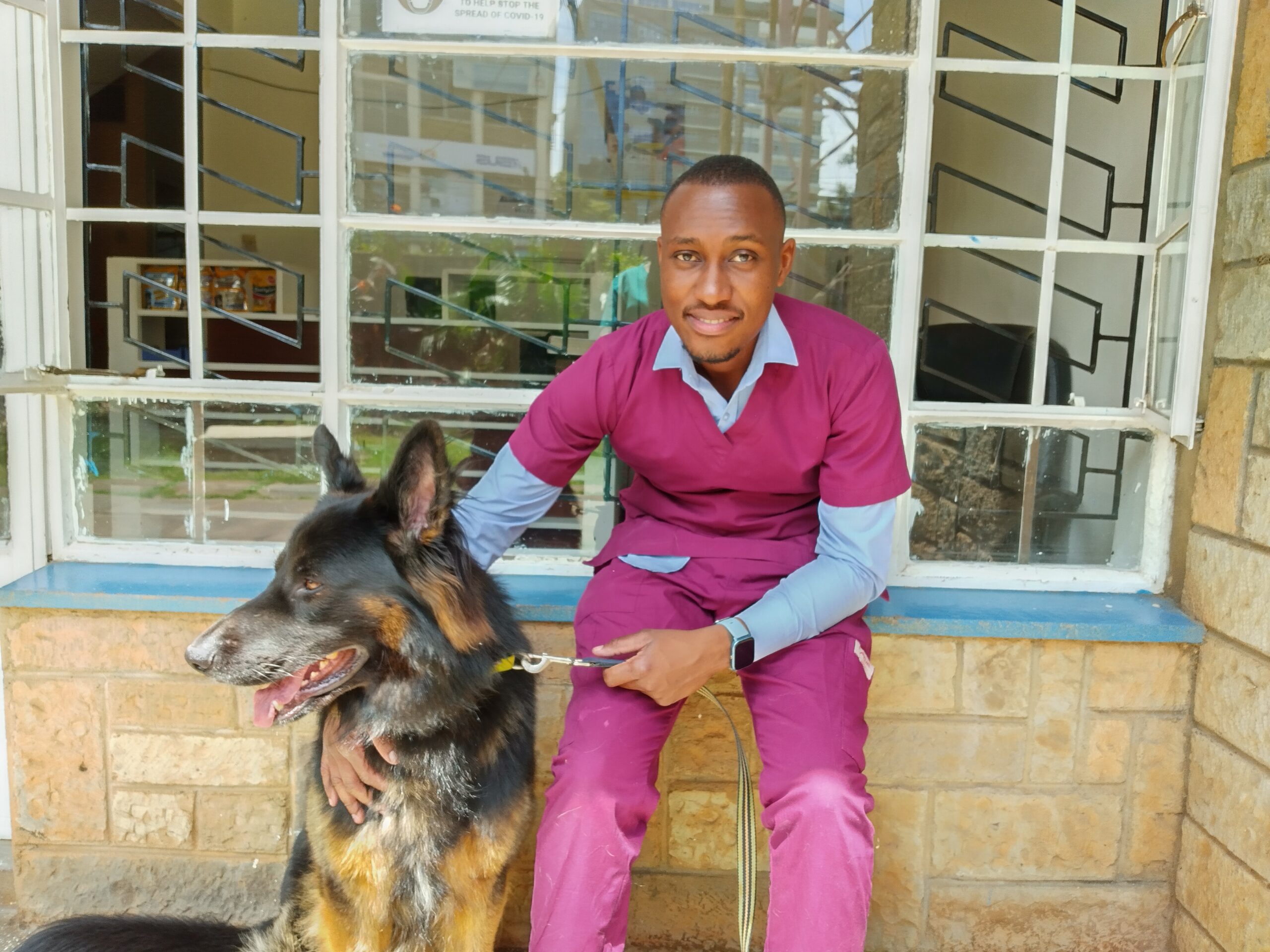Rabbit Care involves providing them with proper housing, nutrition, grooming, exercise, and regular veterinary checkups.
Rabbits are becoming more popular as house pets in Nairobi and Ducknet Veterinary Clinic is committed to providing seamless experience in caring for the bunnies. However, many adopt new pet rabbits without first researching the proper way to take care of them, and because of that, they end up with various health issues that could have been prevented. Here are all of the things you need to know if you want to bring a new pet bunny into your home.
Here’s a detailed breakdown of Rabbit Care:
- Housing:
- Rabbits should have a spacious enclosure to move around freely. A large cage or a rabbit hutch with enough room for them to stretch and hop is ideal.
- The flooring of the enclosure should be solid to prevent injuries to their feet. Covering the floor with soft bedding like hay or straw is comfortable for them and helps absorb urine.
- Provide hiding spots and toys for mental stimulation and to prevent boredom.
- Ensure the enclosure is kept in a draft-free area, away from direct sunlight and extreme temperatures.
- Nutrition:
- The majority of a rabbit’s diet should consist of hay, such as timothy hay or orchard grass. Hay is essential for dental health and proper digestion.
- Fresh vegetables like dark leafy greens (e.g., kale, spinach, romaine lettuce) should be provided daily. Introduce new vegetables gradually to avoid digestive upset.
- Limited amounts of pellets formulated specifically for rabbits can be given daily to ensure they receive essential nutrients.
- Treats such as fruits should be offered sparingly due to their high sugar content.
- Grooming:
- Rabbits are fastidious groomers and generally keep themselves clean. However, they may need occasional grooming, especially long-haired breeds, to prevent mats and hairballs.
- Regularly brush your rabbit’s fur using a soft brush or a grooming mitt to remove loose fur and prevent hairballs.
- Check their nails regularly and trim them if they become too long to prevent them from curling and causing discomfort.
- Exercise:
- Rabbits need plenty of exercise to stay healthy and prevent obesity. Provide them with opportunities for supervised playtime outside of their enclosure in a safe, rabbit-proofed area.
- Encourage natural behaviors like hopping, digging, and exploring by providing toys and tunnels.
- Handling:
- Your rabbit’s backbone is fragile and can fracture very easily if the rabbit gives a strong kick, so it is always important to support the hind end. Never pick a bunny up by the ears because it’s painful for them and simply not necessary. It’s better to grasp the loose skin over the shoulders and scoop the rabbit up under the chest.
- Then, place the other hand under the back legs to lift from the floor. When you’re first learning how to handle a rabbit, it’s better to practice close to the floor so that if the rabbit jumps out of your arms, it won’t be a big fall.
- Veterinary Checkups:
- Regular veterinary checkups are crucial for monitoring your rabbit’s overall health and detecting any potential issues early.
- Find a veterinarian experienced in treating rabbits, as they have specific care requirements different from cats and dogs.
- During checkups, the vet will conduct a thorough examination, including checking their teeth, ears, eyes, and fur.
- Rabbits should receive vaccinations against diseases such as rabbit hemorrhagic disease (RHD) and myxomatosis, depending on the prevalence in your area.
- Discuss spaying or neutering your rabbit with your vet, as it can prevent certain health issues and behavioral problems.
- Spay and Neuter
- Spaying and neutering your cat or dog is a very important and beneficial decision to make, and that is no different when it comes to your pet rabbit. The best age to spay/neuter a rabbit is between 4-6 months of age, which is just before they reach sexual maturity. A rabbit should always be examined by a veterinarian prior to anesthesia to ensure it is healthy enough for surgery.
- Spaying is the surgical removal of uterus and ovaries, and is especially important because it prevents a very common malignant cancer in rabbits called UTERINE ADENOCARCINOMA, occurring in approximately 80% of unspayed females over the age of 2. This cancer spreads rapidly to other organs and is not treatable once it does so. Spaying would also be crucial in a home with males and females living together to prevent a PREGNANCY from occurring. Other uterine diseases you would avoid include pyometra (when the uterus gets infected and fills with pus), uterine aneurism (blood clot in the uterus), and endometritis (inflamed uterine lining).
- There aren’t many common reproductive diseases in male rabbits, however some potential issues include testicular abscesses from bites, hematomas, and testicular cancer. Male rabbits also have a tendency to have AGGRESSION issues around 8-18 months of age, and can also start spraying to mark territory. All of these issues can be prevented by getting your rabbit neutered, which means surgically removing the testicles. The aggression can only be controlled if the neuter occurs before the behavior begins or shortly thereafter.
In summary, providing proper housing, nutrition, grooming, exercise, and regular veterinary care are essential for ensuring the health and well-being of pet rabbits. By meeting these needs, you can help your rabbit live a long, happy, and healthy life.







